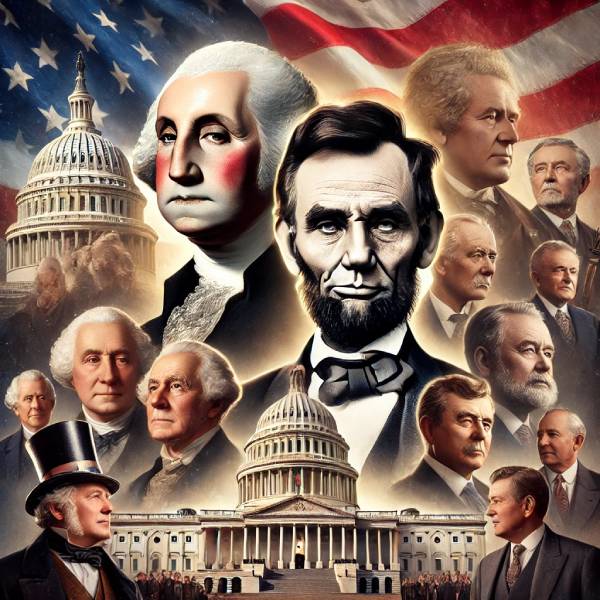
Every year on the 3rd Monday of February, Americans celebrate Presidents' Day—a federal holiday that honors the legacy of the nation's past presidents, with a particular focus on George Washington and Abraham Lincoln. What began as a celebration of Washington's Birthday has evolved into a day to reflect on the contributions of all U.S. presidents. This article delves into the history of Presidents' Day, its origins as a federal holiday, and some interesting facts about this important day in American history.
The roots of Presidents' Day can be traced back to George Washington, the first president of the United States. Washington’s Birthday was initially celebrated as a federal holiday on February 22, which was his actual birth date in 1732. Washington was revered by Americans for his leadership during the Revolutionary War, his role in shaping the U.S. Constitution, and his exemplary two-term presidency that set the tone for future leaders.
After Washington's death in 1799, celebrations of his birthday became widespread, especially in the 19th century. It became an annual tradition to honor Washington's memory with parades, speeches, and events. However, it wasn’t until 1879 that Washington’s Birthday was officially recognized as a federal holiday—originally applying only to the District of Columbia, before being expanded to the entire country in 1885.
The shift from Washington’s Birthday to the modern Presidents' Day as we know it today came with the passage of the Uniform Monday Holiday Act in 1968. This legislation was part of an effort by Congress to provide more three-day weekends for the nation’s workers and to standardize the observance of certain holidays.
The Uniform Monday Holiday Act moved the observance of Washington’s Birthday from February 22 to the 3rd Monday of February. The act also shifted other holidays such as Memorial Day and Labor Day to Mondays. Although the law took effect in 1971, the name "Presidents' Day" was not part of the original legislation. Over time, however, the holiday came to be popularly known as Presidents' Day, partly because the 3rd Monday in February falls between the birthdays of Washington (February 22) and Abraham Lincoln (February 12).
Abraham Lincoln, the 16th president of the United States, is often considered one of the greatest presidents in U.S. history due to his leadership during the Civil War and his role in abolishing slavery. Lincoln’s Birthday, while not a federal holiday, was celebrated in several states, particularly in the North, as early as the late 19th century.
When the Uniform Monday Holiday Act shifted Washington’s Birthday to a Monday, there was growing public interest in broadening the holiday’s focus to include Lincoln as well. Though Congress did not officially rename the holiday, the name "Presidents' Day" gained popularity in the public sphere as a way to honor both Washington and Lincoln, as well as other U.S. presidents.
Over the years, Presidents' Day evolved into a holiday that honors not only Washington and Lincoln but also all U.S. presidents. While some states still emphasize the contributions of Washington and Lincoln, others take the opportunity to recognize the collective leadership of all individuals who have served as president. Presidents' Day has become a reflection on the American presidency itself, celebrating the office’s role in shaping the country’s history and future.
Presidents' Day offers Americans a moment to reflect on the significance of the presidency and the impact that U.S. presidents have had on the country’s trajectory. From the founding of the nation under George Washington’s leadership to Abraham Lincoln’s preservation of the Union during the Civil War, the actions of presidents have shaped the nation in profound ways.
In more recent years, Presidents' Day has become a time to not only honor historical presidents but also to reflect on the qualities that define effective leadership. As citizens, it is a day to consider how presidents have handled the nation’s greatest challenges and how their leadership has helped the United States evolve over time.
Presidents' Day is often marked by educational events, exhibits, and celebrations. Many museums, historical societies, and schools hold special programming to teach students and the public about the lives and legacies of American presidents. In Washington, D.C., the day is sometimes marked by ceremonies and events at the monuments dedicated to former presidents, such as the Lincoln Memorial and the Washington Monument.
For many Americans, Presidents' Day is also an opportunity to engage in discussions about leadership, democracy, and civic responsibility. The holiday encourages reflection on the values that guide the presidency and the role that every citizen plays in holding leaders accountable to those values.
As a federal holiday, Presidents' Day affects various aspects of daily life, particularly in terms of legal and business operations:
For individuals and businesses alike, it’s important to be aware of these closures and plan ahead. Tools like DeadlineCalculator.com can help ensure that deadlines are met and operations run smoothly around federal holidays like Presidents' Day.
What began as a celebration of George Washington’s Birthday has grown into a broader holiday honoring all U.S. presidents. Presidents' Day reflects the evolution of American leadership, the challenges faced by the nation’s presidents, and the role of the presidency in shaping the country’s history. As Americans, the holiday offers a chance to reflect on the qualities of great leadership and the impact that past presidents have had on the nation we know today.
Note: This article provides historical insights into Presidents' Day as a federal holiday. For more information on how federal holidays impact deadlines, visit DeadlineCalculator.com.